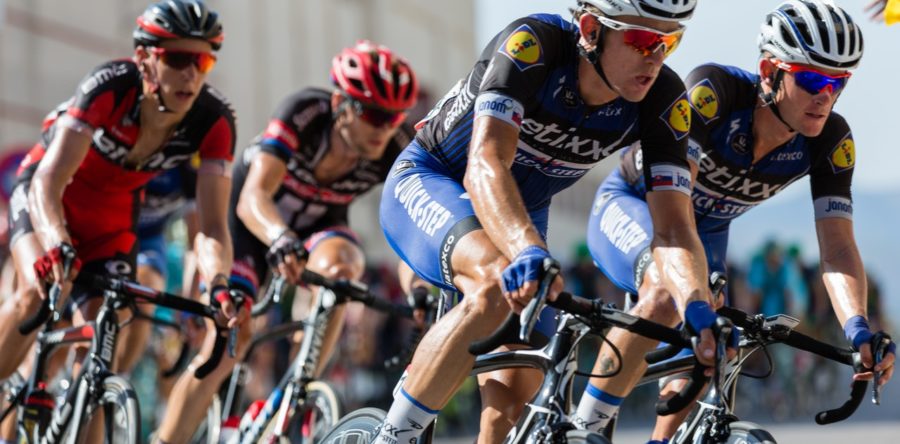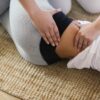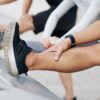More and more health care practitioners are reporting an increase in "Boomeritis," a term developed by Nicholas DiNubile in 1999 to describe the musculoskeletal ailments suffered by aging athletes from the 1946-1964 baby boomer age. This generation of athletes is the first to grow up exercising and continue to exercise well into their 70s. Tendon, muscle, ligament tears, and stress fractures are common musculoskeletal problems in Boomeritis. While these injuries can occur at any age, physiologic changes with aging render this generation more prone to getting them. Here are a few injuries that become more common as athletes become older.
1. Muscle Strain
Due to a decrease in muscle mass and connective tissue integrity, older athletes are more prone to muscle strains. Also, the ability to warm up for an activity that requires a high level of strength, such as the squat, will decrease with age.
2. Cartilage Tears
Ligaments and tendons attach to bone and are supported by an underlying layer of cartilage called articular cartilage. When an older athlete twists a knee, this cartilage can tear. Instead of healing, the cartilage begins to degenerate, and the knee begins to wear away. If a tear occurs, surgical intervention may be required.
3. Stress Fractures
A stress fracture is a crack in the bone that takes longer to heal. As athletes age, they are more likely to develop this type of fracture. Due to a decrease in the production of new bone cells, decreased bone density leads to weaker bones. The bones in weight-bearing areas, such as the feet and lower legs, are more affected.
4. Bursitis or Tendonitis
Bursitis or tendonitis can occur when bursae, joints and ligaments are overloaded from repetitive or too much activity, causing inflammation. Bursae are fluid-filled sacs that cushion the joints. Injury may be caused by a simple twist or fall or repeated small stresses on the same joint over time. Knees and shoulders are prone to bursitis and tendonitis.
5. Achilles Tendon Ruptures
An Achilles tendon rupture is one of the most common injuries in the elderly. Tendons connect muscles to bone, and the Achilles tendon is the largest and strongest tendon in the body. While not as strong as hip, knee, or shoulder ligaments and tendons, Achilles tendons do not have the same elastic properties. Athletes participating in activities requiring a lot of jumping, running, or side-to-side movements are more susceptible to Achilles tendon injuries.
6. Rotator Cuff Abnormalities or Tears
The rotator cuff comprises four muscles and their tendons that surround the shoulder joint. Rotator cuff problems are common in older adults because the shoulder is one of the most commonly injured joints in the body. The rotator cuff can become damaged from a simple twist, fall, or chronic misuse. In the elderly, rotator cuff problems can lead to further problems, such as tendon tears and arthritis.
7. Plantar Fasciitis
The plantar fascia is a long band of tissue that connects the heel bone to the toes and supports the foot's arch. As a person ages, the fascia becomes thinner, making it more likely to develop inflammation and pain. Plantar fasciitis is the most common cause of heel pain in older adults. In addition, the cushioning around the heel becomes less supportive as people age.
Conclusion
As the baby boomer and Gen X generations continue to age, the trend of “Boomeritis” injuries will continue. It is important to discuss these injuries with your physiotherapist before starting an activity, especially if you have a history of knee or hip injuries. Your physiotherapist will be able to tell if an injury is a stress fracture, tendon tear, rotator cuff tear, or bursitis. They can also give advice on how to start an activity safely and manage Boomeritis injuries if they occur.
If you're looking for sports physiotherapy in Whitehorse to counteract the effects of aging on your sports activities, look no further than Whitehorse Physiotherapy! Our approach is holistic and individualized. We find and target the root cause with focused treatments and empower you with the knowledge to help you remain pain-free when you finish at our clinic. Book an appointment today!





